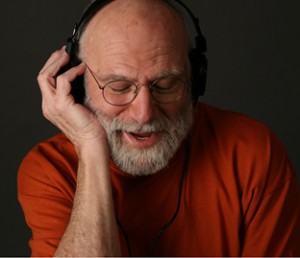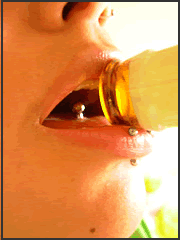 On June 30th! Dr. Oliver Sacks explores how music makes the brain come alive on Nova’s Musical Minds.
On June 30th! Dr. Oliver Sacks explores how music makes the brain come alive on Nova’s Musical Minds.
Watch a preview of this PBS Special that airs tonight at 8.pm and then online from July 1st, 2009
Source: PBS
  On June 30th! Dr. Oliver Sacks explores how music makes the brain come alive on Nova’s Musical Minds.
On June 30th! Dr. Oliver Sacks explores how music makes the brain come alive on Nova’s Musical Minds.
Watch a preview of this PBS Special that airs tonight at 8.pm and then online from July 1st, 2009
Source: PBS
Two new studies show that problems with the mind can play a significant role in problems of the heart.
One study found that anxiety and depression can increase the incidence of angina, the chest pain that sends many people to the doctor, said Dr. Mark Sullivan, professor of psychiatry and behavioral sciences at the University of Washington, and senior author of one of the reports in the June 29 online issue of Circulation.
“The overwhelming focus in the United States has been on ischemia,” the blockage of heart arteries, Sullivan said. “That is pretty unique in the world. The rest of the world takes a much more multi-modal approach to chest pain. Ischemia is not the only or most important cause of what patients are feeling.”… continue readingÂ
Source: ABC:Â Sullivan, M.D., Ph.D., professor, psychiatry and behavioral sciences, University of Washington, Seattle; Nancy Frasure-Smith, Ph.D., senior research associate, Montreal Heart Institute; June 29, 2009, Circulation, online ![]()

© iStock
Nearly 7 million Americans aged 18 to 25 were classified as needing treatment in the past year for alcohol or illicit drug use according to a new national study. The study by the Substance Abuse and Mental Health Services Administration (SAMHSA) also shows that that 93 percent of these young adults did not receive the help they needed at a specialty treatment facility. These levels have remained relatively stable since 2002. [continue reading…]

Image: University of Alabama
New research shines a light on the phenomenon of “cyber bullying,” suggesting that nearly 1 in 10 children are bullied through electronic means such as text messages, and girls are more likely to be victims than boys are.
Other kinds of bullying remain much more common, however. Large numbers of kids continue to harass each other by spreading rumors, turning fellow students into outcasts and intimidating others through words and violence.
There is a bright spot: The findings suggest that parents have the power to prevent kids from bullying or being bullied. [continue reading…]